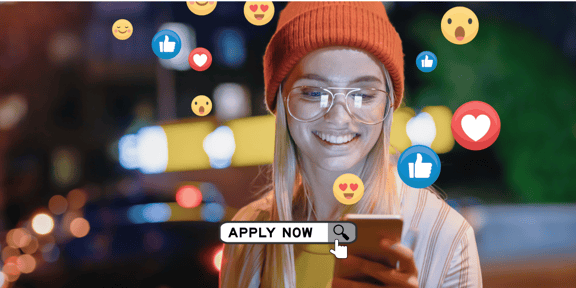Social Media Recruiting

Social media recruiting: strategies for approaching applicants digitally
Social media recruiting refers to all measures in which social networks are used to specifically target talent. This ranges from paid advertising and organic content to targeted active sourcing activities.
What is social media recruiting and why is it important?
While recruiting often takes place at short notice, talent acquisition pursues a strategic approach. The aim is to proactively meet future needs and build a sustainable pipeline through modern measures such as active sourcing and employer branding.
Recruiting on LinkedIn, Instagram & Co.: Relevant channels & differences
LinkedIn is ideal for skilled workers and B2B roles. Instagram recruiting offers visual employer branding opportunities. TikTok, Facebook and YouTube can also be useful, depending on the target group.
Social media recruiting & employer branding: How to make the combination work
Social recruiting only works in conjunction with strong employer branding. Authentic content, employee videos or insights into everyday office life strengthen the employer brand. Find out more in the career website section.
Tips for your social recruiting strategy
Define your target groups. Choose suitable platforms. Use content formats such as reels, carousels and stories. Analyse results with appropriate KPIs. beesite is the supporting recruiting software.
FAQs: Frequently asked questions about social media recruiting
1. What is the difference between social media recruiting and traditional recruiting?
Traditional recruiting focuses on job advertisements and applications. Social media recruiting uses platforms such as LinkedIn or Instagram to target specific talent – often before they are actively looking for a job. It is more interactive, faster and also strengthens employer branding.
2. Which social media channels are best suited for recruiting?
LinkedIn is ideal for specialists and executives in the B2B sector, while Instagram and TikTok appeal primarily to young talent. The choice depends on the target group – an analysis of candidate personas helps in choosing the right platform.
3. What advantages does social media recruiting offer companies?
Social media recruiting enables greater reach, faster response times and direct communication with potential candidates. It strengthens the employer brand and improves the candidate experience – especially among younger target groups.
Social media recruiting is an integral part of modern recruitment. Those who present themselves in a targeted manner, use relevant channels and come across as authentic will remain visible in the battle for talent.